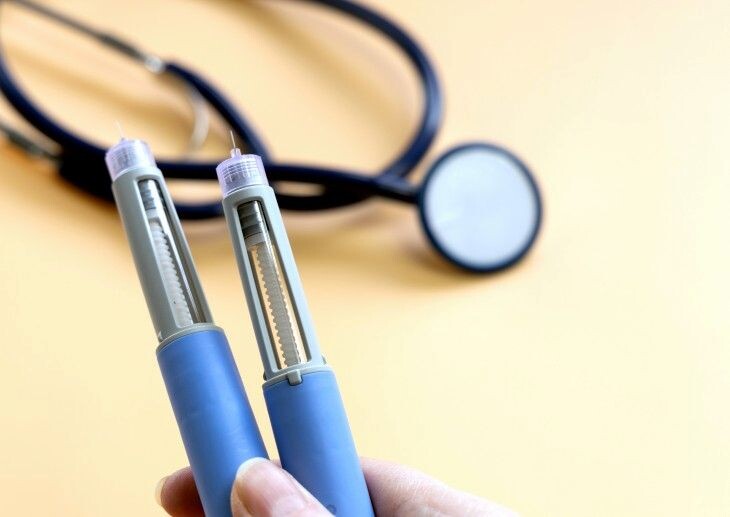The RCGP and NHS Confederation have called on the Government to ‘radically’ reform GP funding in England, highlighting that the current Carr-Hill formula disadvantages patients in poorer areas.
In an open letter to the primary care minister, also co-signed by the Health Foundation, and patient charity National Voices, the college argued that GP practices in areas of ‘greatest deprivation’ do not receive ‘proportional funding’ to address more ‘complex needs’.
The organisations have urged the Department of Health and Social Care (DHSC) to reform funding so that it takes into account regional health disparities.
According to the letter, practices in the poorest areas have 14.4% more patients per fully qualified GP than practices in wealthy areas, but they receive 7% less funding after accounting for the additional needs of their local populations.
It said: ‘While all areas need more funding, we need a radical change in the way that funding is allocated to better take into account the needs of different communities.
The RCGP highlighted that its recent polling showed that 71% of the public agree with the principle that GP practices in the ‘worst-off’ areas should receive additional funding.
The letter continued: ‘We therefore urge the Government to review all general practice funding streams to channel more spending to the areas of greatest need. As part of this, three key income streams for general practice require specific attention: core funding, incentive schemes, and Primary Care Network funding. In addition, workforce distribution must be addressed.’
On the Quality and Outcomes Framework (QOF), the organisations called for a ‘revision in the indicators’ to ensure ‘equitable distribution’.
A Government consultation on the future of QOF recently ended, which had asked whether relative targets could be more effective in addressing health inequalities.
The letter also argued that PCNs in areas of high deprivation ‘have access to less funding and fewer staff’, and urged primary care minister Andrea Leadsom to revise the scheme to ‘account for deprivation’.
Since the introduction of the Carr-Hill formula – which weights funding for practices – in 2004, there has been huge debate around the emphasis it places on the age of the patient population rather than the practice’s deprivation levels.
A 2019 study of UK practices found that for every 10% increase in a practice’s Index of Multiple Deprivation score, payments only increased by 0.06%, adding this suggests the formula is very unlikely to lead to a more equitable allocation of NHS practice funding.
The previous RCGP chair Professor Martin Marshall said in 2022 that the Carr-Hill formula for practices in England ‘needs reworking very clearly’.
And NHS England’s previous head of primary care Dr Nikki Kanani also said in 2022 that the GP contractual framework needs to shift to put more emphasis on deprivation.
Current RCGP chair Professor Kamila Hawthorne said yesterday that GPs have seen a widening gap between their ‘richest and poorest patients’ health’ over recent years, and the ‘devastating health effects’ of deprivation.
She said: ‘We need to review our funding structures to ensure that the communities worst affected by rising rates of deprivation get the support they need. Currently, we’re failing to allocate resources appropriately and our most vulnerable patients are bearing the brunt.
‘GPs and their teams across the country are dealing with intense resource and workforce pressures – but this is being felt more acutely in more economically deprived areas. Where people live shouldn’t dictate the care they have access to and receive.’
Professor Hawthorne said that these problems will only worsen as demand for GP care increases, and she called on the Government and all political parties to ‘heed’ their calls ‘to address the GP funding structure to tackle growing health inequalities’.
The NHS Confederation’s Primary Care Network chair Professor Aruna Garcea said it is ‘crucial’ the Government starts treating NHS investment as an ‘explicit tool for economic development’.
‘While there was much to welcome in this year’s GP contract the sad reality is the 1.9% uplift for general practice is simply not enough, we now need to see a renewed and reinvigorated commitment to support primary care, including through additional multi-year investment and to build the strong primary care infrastructure needed to offer a greater range of services to patients fit for the future,’ she added.
DHSC said the NHS is now ‘delivering over 60 million more GP appointments’ per year with almost 40,000 additional staff working in general practice compared to 2019.
A spokesperson said: ‘NHS England is working to reduce health inequalities and improve the health of the poorest 20% of the population, regardless of where they live while our forthcoming Major Conditions Strategy will help address disparities in health outcomes, supporting the mission to improve healthy life expectancy by 2030.’
A version of this story was first published on our sister title Pulse.






